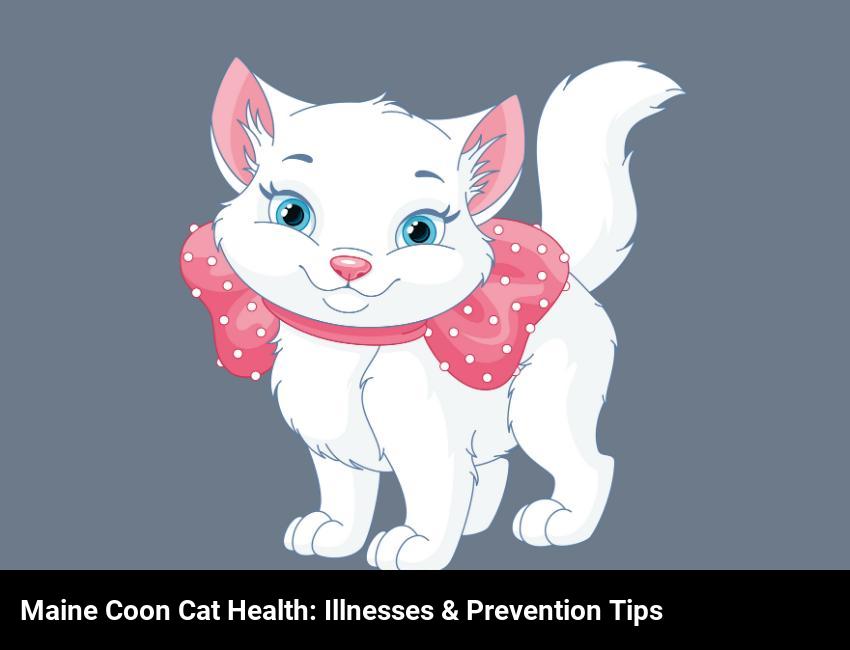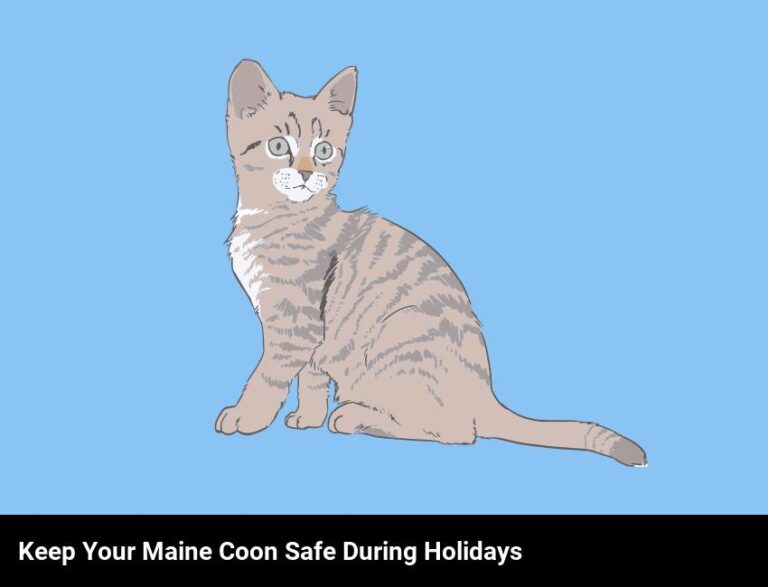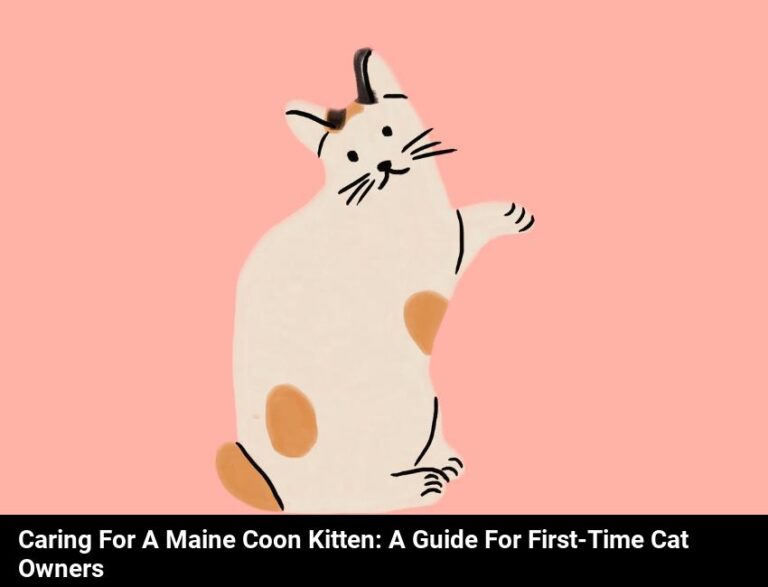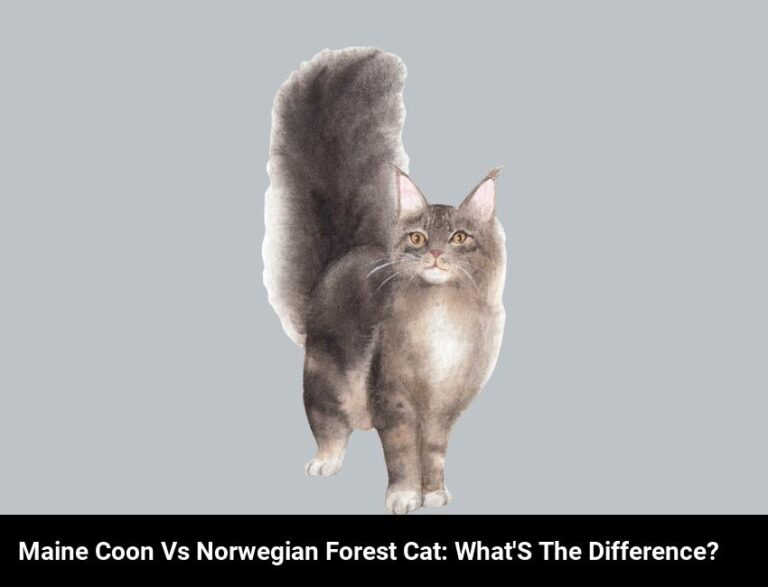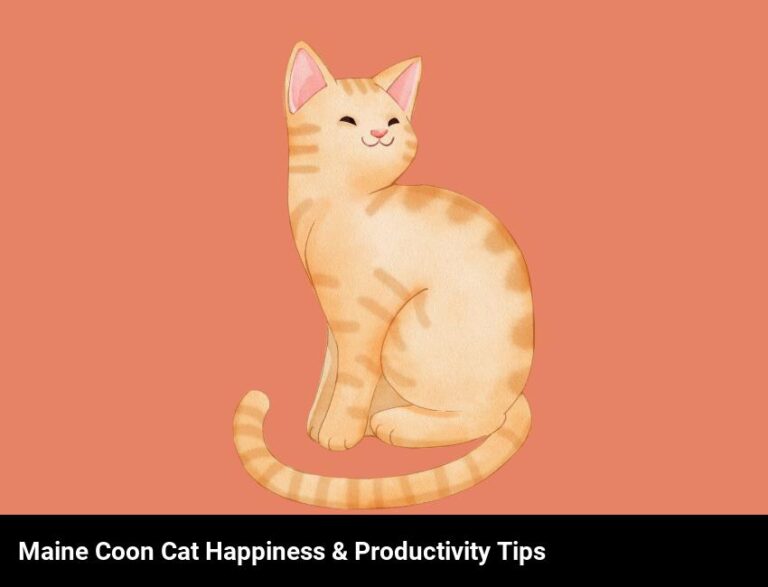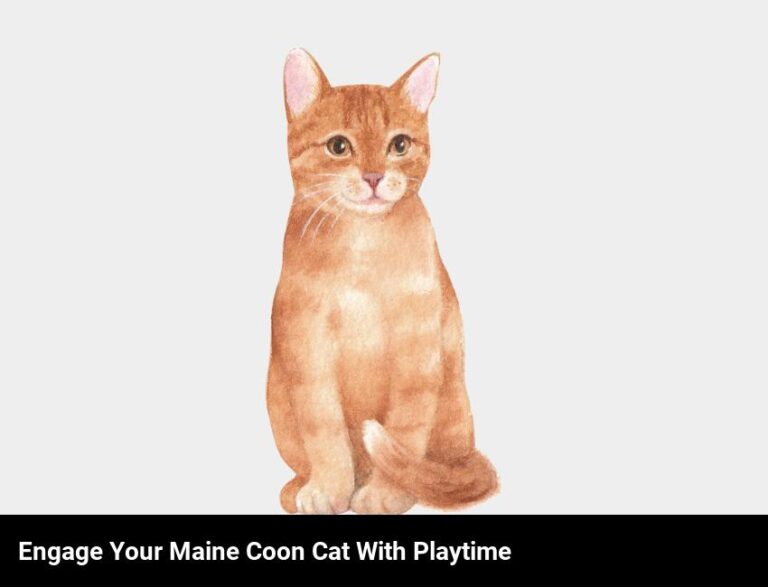Maine Coon Cat Health: Common Illnesses And Prevention Tips
Maine Coon cats are generally healthy but may be at risk of certain genetic disorders. To help prevent illness, it’s important to feed your cat a balanced diet, keep their vaccinations up-to-date, and have regular vet check-ups. Grooming your cat regularly and providing plenty of exercise can also help keep them healthy.
As a proud owner of a Maine Coon cat, I’ve learned a lot about their health needs. Maine Coon cats are generally a very healthy breed, but like any other cats, they are susceptible to certain illnesses.
As a pet parent, it’s important to know the most common illnesses that Maine Coon cats experience and the preventive measures you should take to ensure your cat’s well-being.
In this blog, I’ll be discussing the most common illnesses that Maine Coon cats experience, the signs of illness, and the steps you can take to maintain your Maine Coon cat’s good health.
I’ll also be covering the supplements and vitamins that may help your Maine Coon cat stay healthy and strong. I’m sure you’ll find this blog to be a helpful guide in taking the best care of your beloved Maine Coon cat.
What are the most common illnesses that maine coon cats experience?
Maine Coon cats can suffer from a number of different illnesses, some of them more common than others. Feline upper respiratory infections, also known as URI, are the most common ailments that Maine Coon cats experience. These infections are caused by viruses and bacteria and can cause a wide range of symptoms such as sneezing, coughing, runny eyes and nose, and itchy skin.
Another common illness that many Maine Coon cats are prone to is intestinal parasites. These parasites can cause gastrointestinal upset and can result in vomiting, diarrhea, and dehydration. These parasites can also cause anemia and weight loss, so it’s important for owners to get their cats regularly tested for these parasites.
Feline hypertrophic cardiomyopathy is another common illness among Maine Coon cats. This is a heart condition that causes an enlargement of the heart muscle, which then causes it to function improperly. This can lead to heart failure and other life-threatening complications. It is important for owners to get their cats regular checkups to make sure their cats are not showing signs of this condition.
Finally, Maine Coon cats can suffer from joint and muscle problems. These can include arthritis, hip dysplasia, and other muscular degenerative diseases. These can be quite painful and can cause an inability to move around or climb as they used to. It is important for owners to monitor their cats closely and see a vet if they notice any signs of joint or muscle pain.
Overall, the most common illnesses that Maine Coon cats experience are feline upper respiratory infections, intestinal parasites, hypertrophic cardiomyopathy, and joint and muscle problems. It is important for owners to keep an eye out for any signs of these illnesses and to visit their vet regularly to ensure their cats stay healthy.
What preventive measures should owners of maine coon cats take to reduce the likelihood of their cats developing illnesses?
As an owner of a Maine Coon cat, you want to do everything you can to ensure your furry friend stays healthy and happy. Here are some preventive measures that you should take to reduce the likelihood of your cat developing illnesses:
- ) Visit the veterinarian regularly. Make sure to schedule yearly checkups with your vet, and call them right away if you notice suspicious changes in your cat’s behavior or physical appearance.
- ) Feed your cat a healthy, nutritious diet. Choose a cat food that is specifically formulated for Maine Coons and provide plenty of fresh water every day.
- ) Keep your cat active. Provide plenty of toys and spaces for them to explore and play to keep them physically and mentally healthy.
- ) Monitor your cat’s environment. Be sure to keep your home free of any toxins that could potentially harm your cat and make sure there are no other cats in the area that could carry infections.
- ) Ensure that your cat is up to date on vaccinations. Speak with your vet about what vaccinations your cat should have and follow their recommendations.
By taking these preventive measures, you can help ensure your Maine Coon cat is happy and healthy for years to come.
Are maine coon cats more likely to contract certain illnesses than other cat breeds?
Yes, Maine Coon cats may be more likely to contract certain illnesses than other cat breeds. This is because they have a unique genetic makeup that can make them more susceptible to specific issues. For instance, Maine Coons are known to suffer from hypertrophic cardiomyopathy, a condition in which the heart muscle becomes thickened and can’t function normally. This can lead to a range of heart issues, from arrhythmia to heart failure.
Maine Coons are also at higher risk for polycystic kidney disease, which can cause cysts to form in the kidneys, leading to kidney failure. This condition is usually passed on genetically, so it’s important to make sure that the parent cats are tested for it before breeding.
In addition, Maine Coons have a higher risk of developing diseases that affect the joints, such as hip dysplasia and luxating patella. While these conditions are not life-threatening, they can cause mobility issues and pain.
Finally, Maine Coons are more likely to suffer from polycystic ovary syndrome, which is caused by an imbalance of hormones in the body. This can cause the cat to suffer from a variety of physical and behavioral issues.
Overall, it’s important to be aware of the possible health risks associated with Maine Coon cats, and take steps to prevent these illnesses. Regular vet visits, a balanced diet, and plenty of exercise can help your Maine Coon stay healthy and happy for many years to come.
How do these illnesses typically manifest in maine coon cats?
If you own a Maine Coon cat, you may be wondering how certain illnesses tend to manifest in this breed. Here are some of the most common illnesses that Maine Coon cats may experience, and how they typically present themselves:
- Respiratory Issues: Maine Coon cats are known to be more prone to respiratory illnesses than other breeds, such as bronchitis, asthma, and upper respiratory infections. Symptoms of these illnesses include coughing, sneezing, runny nose, and difficulty breathing.
- Eye Problems: Eye problems in the Maine Coon breed are usually caused by an eye infection or allergies. Symptoms may include abnormal discharge from the eyes, swelling of the eyelids, and redness in the area around the eyes.
- Cardiac Issues: Maine Coon cats are also prone to heart issues such as hypertrophic cardiomyopathy (HCM). HCM is a heart condition that affects the muscle tissue, and can cause difficulty breathing, lethargy, and even sudden death.
- Bone and Joint Pain: Maine Coon cats are also prone to arthritis and other degenerative joint diseases. Symptoms may include limping, trouble climbing, and difficulty getting up and down.
- Gastrointestinal Disorders: Gastrointestinal issues, such as diarrhea and vomiting, are also common in Maine Coon cats. Symptoms may include decreased appetite, weight loss, and dehydration.
By understanding how these illnesses typically manifest in Maine Coon cats, you can be better prepared to recognize the signs and take the necessary steps to keep your cat healthy and happy.
How can owners detect if their maine coon cat is showing signs of illness?
As Maine Coon owners, it’s important to know the signs that your cat is not feeling well. There are several telltale signs that your Maine Coon may be ill, so it’s important to be aware of them.
One way to tell if your cat is feeling under the weather is to observe its behavior. If your Maine Coon is usually an active and playful cat, but it suddenly becomes lethargic, this can be a sign that something is wrong. Also, if your Maine Coon is not eating or drinking its normal amount of food and water, this can also be a sign of illness.
Another way to tell if your Maine Coon is unwell is to check its coat. Maine Coons are known for their thick and glossy coats, so if you notice that your cat’s coat is dull and patchy, it may be a sign of illness. Also, if you notice any fleas, ticks, or other parasites on your cat’s fur, this is another sign that your cat may be unwell.
Finally, it’s important to keep an eye on your Maine Coon’s litter box. If you notice that your cat is having difficulty using the litter box or that it’s having more than its usual number of accidents, this could be a sign of illness or an underlying medical condition.
By keeping an eye out for these signs, you’ll be able to tell whether your Maine Coon is showing signs of illness and take the necessary steps to get your cat the medical attention it needs.
What are the best ways to keep maine coon cats healthy?
Maine Coon cats are some of the most loyal and friendly cats around, and they’re known to live long, healthy lives. To make sure your Maine Coon cat remains in tip top shape and enjoys many years of good health, there are a few things you should be paying attention to.
First, make sure your cat is getting plenty of exercise. Maine Coons are known for their intelligence and energy, so provide your cat with plenty of toys and activities to keep them active and entertained. Make sure they have a scratching post, a safe and secure place to climb, and enough room to roam around and explore.
Second, make sure your Maine Coon is getting the proper nutrition. Feed them a high-quality cat food that is specifically designed for their age, size, and activity level. Skip the cheap, store-bought brands and opt for cat foods that are designed for higher-quality ingredients.
Third, make sure your cat is getting routine checkups with the vet. Routine checkups can help identify potential issues before they become a bigger problem. Plus, they will also help keep your cat up to date on all their vaccinations, which is essential for their health and longevity.
Finally, be sure to provide your Maine Coon with a clean, safe environment. Keep their litter box clean, provide them with plenty of fresh water, and make sure they have a comfortable and safe place to sleep.
Are there any supplements or vitamins that can help maine coon cats maintain good health?
Yes! There are a variety of supplements and vitamins that can help your Maine Coon cat maintain a healthy lifestyle. Omega 3 and 6 fatty acids are a great supplement for cats, especially Maine Coons, as they can help support healthy skin and coat. Vitamin E is also important for Maine Coons, as it helps support healthy eyes, skin and overall immunity. Probiotics are a great way to help keep your Maine Coon’s gut healthy and balanced. Lastly, glucosamine supplements are a great way to help support healthy joints, as Maine Coons are known for having larger, heavier bodies that can put extra strain on their joints.
No matter what supplements or vitamins you choose, it is important to talk to your vet first to make sure they are right for your Maine Coon. They can also recommend the correct dosage and help you decide on the best option for your cat’s individual needs. Once you have the all-clear from your vet, you can start introducing the supplements and vitamins into your Maine Coon’s diet.
With the right combination of supplements and vitamins, you can help your Maine Coon stay healthy and happy for years to come.
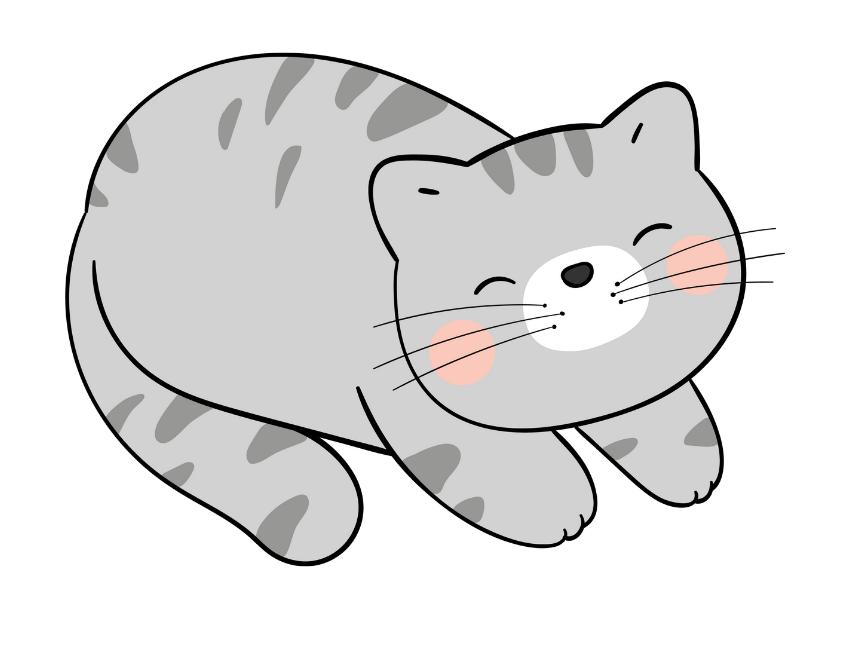
Frequently Asked Questions
What specific dietary needs must maine coon cats have to stay healthy?
Maine Coon cats need a high-quality diet that is high in animal proteins, healthy fats, and other essential vitamins and minerals. They also need regular access to fresh, clean water and a variety of wet and dry food options. A balanced diet tailored to the individual cat’s energy needs is important for maintaining optimal health.
Are there any specific environmental factors that could impact the health of a maine coon cat?
Yes, there are certain environmental factors that can impact the health of a Maine Coon cats. These include exposure to extreme weather conditions, exposure to toxins, access to fresh food and water, and contact with other cats that may have contagious diseases. Keeping Maine Coon cats in a safe, healthy environment is vital to their long-term health.
Are there any unique grooming needs for a maine coon cat?
Yes, Maine Coon cats have some unique grooming needs. They have a thick, long coat that requires regular brushing and combing. Their coats are prone to matting, so be sure to brush them regularly to keep it from becoming tangled. Additionally, their ears need to be cleaned regularly to prevent infections and their nails should be trimmed at least once a month. With proper care and attention, you can keep your Maine Coon healthy and happy.
Are there any signs of illness to watch out for in a maine coon cat?
Yes, there are some signs of illness to look out for in a Maine Coon cat. These may include changes in appetite, weight loss, vomiting, diarrhoea, coughing, sneezing, eye or nose discharge, excessive grooming, and dull or patchy fur. If you notice any of these signs, it’s important to take your Maine Coon to the vet for a check-up.

